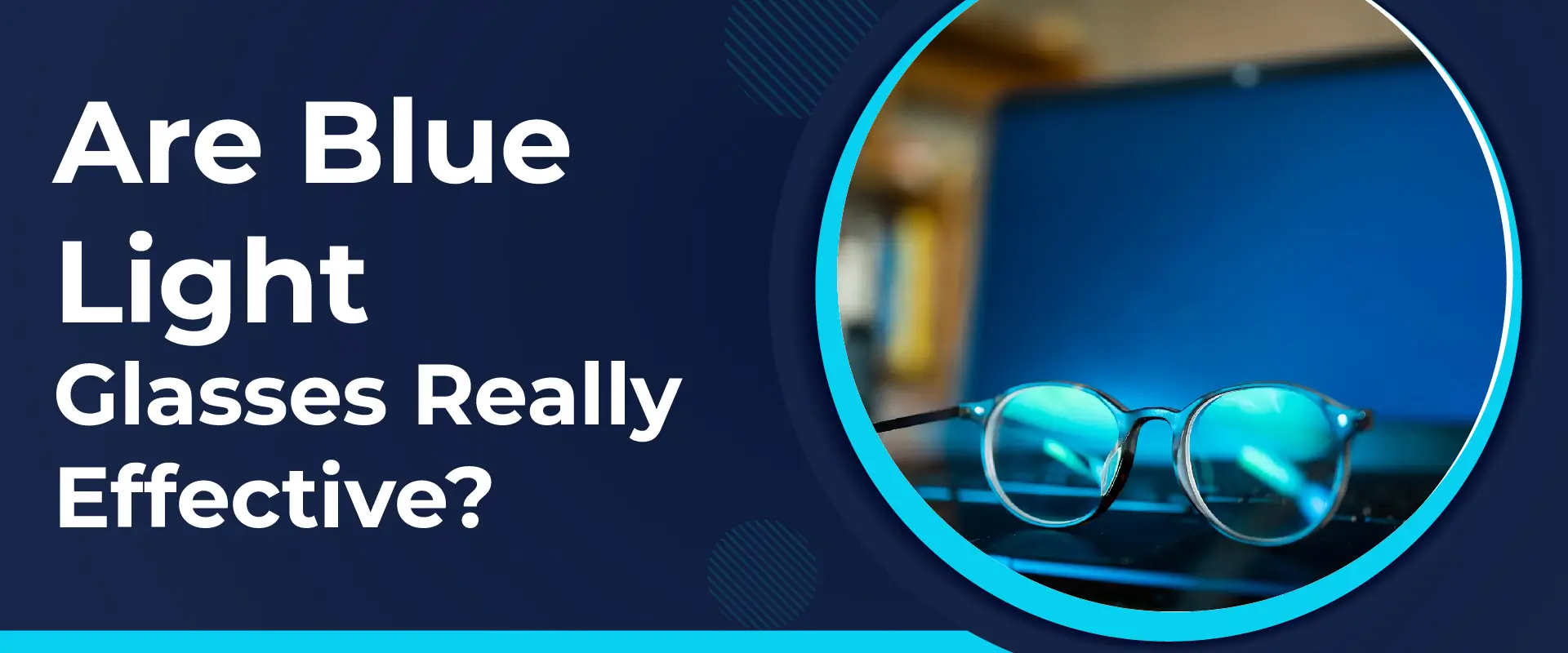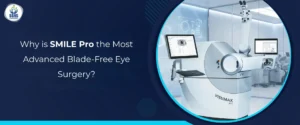Blue light glasses —- a modern age accessory for people who are around screens most of the time. So, do they really work, or is it just a marketing tactic? Well, blue light glasses are effective only if you get the right pair. Most glasses that claim to be blue light ones aren’t authentic.
So, should you buy them or just continue working on screens with your bare eyes? If we talk from a medical perspective, if you are in front of screens at the time, and especially before you go to bed, having some sort of protection is recommended.
In this blog, we will talk about how blue light glasses protect your eyes from strain and how you can make the most out of them. So, let’s dive in.
Read more on:
ToggleWhat is Blue Light?
Blue light is a light spectrum that comes from the sun and also from digital screens. Though blue light in the day helps regulate sleep-wake cycles but at night, it can suppress melatonin production, which leads to disturbed sleep that further leads to more eye strain, headaches, etc.
What Are Blue Light Glasses?
Blue light glasses are eyewear with lenses that block blue light. These lenses have a slight yellow tint or have a blue coating. These glasses lower digital eye strain and help with headaches and sleep.
Claims and Benefits
Manufacturing companies claim that blue light glasses help with digital strain, sleep regulation, headaches, and also prevent refractive error. Though the first three claims are proven but preventing refractive error is not scientifically proven.
Most patients have reported that their eye strain has noticeably reduced, and their sleep has also improved after they started using these glasses during screen time.
Final Thoughts
If you have joined a new corporate job or started to spend more time using digital screens and experiencing tired or itchy eyes, it is important to consult an eye specialist and get blue light glasses.
However, if you are not facing any issues, it is advisable not to use it unnecessarily, as it can have a negative impact as well. It is because most people think that wearing blue light glasses is enough, and they don’t make any changes or improvements to their screen use habits, like taking breaks, blinking often, adjusting screen brightness, etc. In reality, most refractive errors occur due to prolonged screen use, not due to the blue light.
So, if any eye discomfort is there, go to the doctor and get the right advice. Blue light glasses aren’t just a fashion accessory — they’re meant to serve a specific purpose and should be used only when needed.





